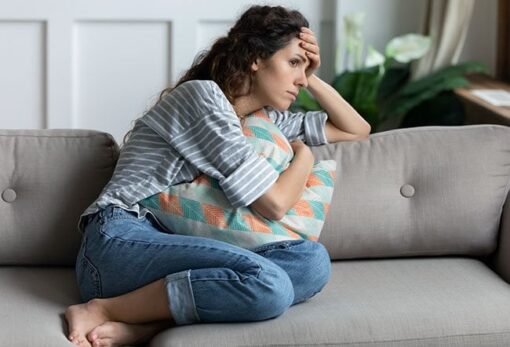While most Australians aim to stay well connected within their environment, this doesn’t stop us from feeling alone at some point in our lives. Many people experience difficulties with social interactions and can feel socially isolated.
Loneliness is a feeling of distress you may have experienced at some point in your life. When our social relations are not happening the way we would like, we can have a personal feeling of social isolation. You can still be surrounded by others, but still feel lonely. Just as we can be alone or on our own, but not feel lonely.
If you often feel lonely, it may be a sign that your relationships are inadequate, or maybe they don’t meet your expectations or needs. As humans, we are essentially social animals. Loneliness is thought to arise because an innate need to belong to a group is unmet. It signals the need to form a meaningful connection with others.

Research has found that loneliness is related more to the quality than the quantity of relationships. You may feel that your relationships are not meaningful, and that you’re not understood by others.
In a recent National survey* of adults – the largest survey that has ever been undertaken in Australia – the level of loneliness in Australian’s was explored, and the impact this had on people’s wellbeing.
Loneliness Study Results, and How it Affects You
- One in four Australian adults are lonely.
- 50% of Australians feel lonely for at least one day in a week, while 27% feel lonely for three or more days.
- Nearly 55% of the Australian population feel they lack companionship sometimes.
- One in four Australians experience high levels of social interaction anxiety.
- Australians who are married are the least lonely, compared to those who are single, separated or divorced. Australians in a de facto relationship are also less lonely than those who are single or divorced.
- Lonely Australians have significantly worse health status (both physical and mental) than connected Australians.
- Lonely Australians are 15.2% more likely to be depressed and 13.1% more likely to be anxious about social interactions than those not lonely.
- Australians over 65 years are least lonely; other age groups experience similar levels of loneliness. They also report better physical and mental health, lower levels of social interaction anxiety, fewer depression symptoms and greater social interaction than younger Australians.
- Younger adults report significantly more social interaction anxiety than older Australians.
- Higher levels of loneliness are associated with higher levels of social interaction anxiety, less social interaction, poorer psychological wellbeing, and poorer quality of life.
What Does This Mean?
Loneliness is increasing and it’s important to look at why. What social interactions are you having around you? If lonely Australians are reporting poorer mental and physical health and quality of life, they are also having:
- a higher level of anxiety about social interaction
- less frequent social interaction
- more frequent negative emotions and depression/low mood symptoms
All of this can make it difficult to overcome loneliness. It also shows how connected loneliness and anxiety feelings are. With anxiety about social interactions being quite common, there’s so many of us experiencing challenging social situations such as meeting people at parties, talking to unfamiliar people, and speaking with someone in authority.
The power of human connection is massive – it helps us to feel less lonely and feel like we belong. So, to feel less lonely, think of ways you can connect more with people around you.
What You Can Do to Feel Less Lonely
Seeing friends and family and leaning on them for support is so important. If you’re not close with your family, seek out a work colleague, or alternatively speak to a mental health professional like a counsellor or psychologist. Isolating yourself only makes things worse, so start with choosing one person – talk to them, have a coffee, go and do something enjoyable together. Then build your network around you from there. It will make all the difference.
Written by Rebecca Deane – Principal Clinical Psychologist – www.creatingchange.net.au
*study published by the APS (2018). National survey of adults.

